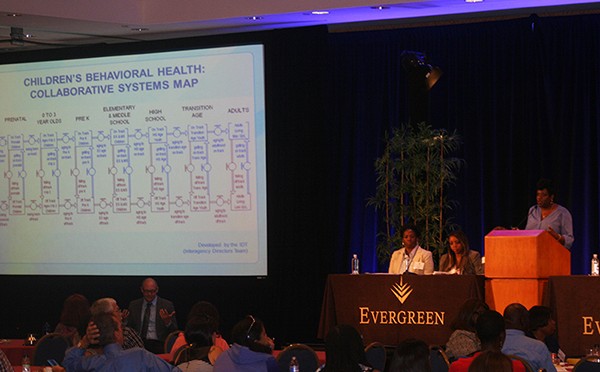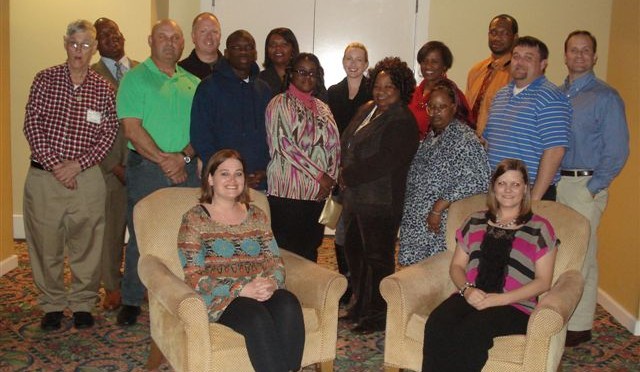Even though Georgia has not experienced any major weather disasters since the ice storms of early 2014, DBHDD is always planning and preparing for the next time our employees, providers, and the people we serve will be affected by an incident. As designated in Georgia’s Emergency Operations Plan, DBHDD is responsible for coordinating all disaster preparedness and response activities related to behavioral health and developmental disabilities.
To support preparedness, DBHDD partners with the American Red Cross (ARC) of Georgia to create a one-day training for ARC disaster mental health volunteers. This program has increased the number of trained ARC volunteers to more than 200, resulting in increased capacity for response throughout Georgia. Most recently, DBHDD expanded our collaboration by delivering training for the Georgia Psychological Association on August 14, 2015. Another class is scheduled for Grady Behavioral Health on October 30, 2015.
ARC disaster mental health volunteers with DBHDD’s Tier One providers to meet the needs of Georgians after a disaster. Tier One providers are responsible for delivering continuity of care to individuals who receive DBHDD services and for providing emotional support to disaster survivors and responder personnel. In addition to ARC disaster mental health classes, DBHDD offers classes in disaster mental health field response training four times a year.
Other preparedness activities carried out by DBHDD include:
- Participation in disaster exercises
- Assisting DBHDD providers with their disaster plans
- Developing policy related to disaster preparedness and response
- Collaboration with other emergency response agencies to ensure that they consider the needs of people served by DBHDD in their plans
- Cooperation with federal partners regarding disaster planning
- Implementation of DBHDD All-Hazards Disaster Response Plan during times of disaster
- Administration of the Federal Emergency Management Agency’s Crisis Counseling Assistance and Training Program when warranted
DBHDD’s disaster preparedness and response program is housed under the Division of Behavioral Health’s Office of Adult Mental Health. If you have questions or need assistance related to disaster planning and response, please contact Disaster Mental Health Services Coordinator Jeannette David at jeannette.david@dbhdd.ga.gov or (404) 657-2354.

